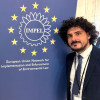Rodrigo da Costa, EUSPA’s Executive Director, and Paul Liias, Chair of the EUSPA Administrative Board, will welcome participants and provide news and major updates about EU Space market components’ evolutions, followed by an overview of the UCP sessions and the actions derived from the new user requirements collected during consultations with users. Then, the main practical guidelines for the participants will be provided.
Programme
This session will explore how space technologies including Copernicus and EGNSS can boost sustainability, resilience, and innovation in agriculture, forestry, and climate segments, with the purpose of gathering and exploring GNSS and EO user requirements and needs.
Participants will discover how satellite data supports the implementation and monitoring of CAP eco-schemes, the role of space technologies in emerging markets for nature credits and nature-based solutions, where robust and transparent monitoring is essential. Galileo’s High Accuracy Service (HAS) role in precision agriculture and autonomous machinery evolution will also be showcased, with a focus on understanding related user requirements. Finally, the participants will learn how EO and Copernicus enable early detection and response to agricultural and forestry threats, in the context of food security, with user requirements and needs being collected.
































EU Space Programme components, especially GNSS and Copernicus, are already exploited in the rail market segment, mainly in non-safety relevant applications and for monitoring of the railway infrastructure and its surroundings. There is also strong progress in the safety-relevant applications such as railway signaling, for what concerns potential adoption of GNSS for localization and eventually in outlook also EU SATCOM for supporting railway telecoms. The session will offer a reiteration of the currently known user requirements as well as state-of-the-art R&D projects in the area. The session will be focusing on exchange with rail stakeholders on the evolution of the requirements on GNSS, Copernicus and EU SATCOM and will offer possibility for discussion regarding the outlook on how can the EU Space Programme further contribute towards facilitation of safe and efficient railway transport in Europe.










As the advent of Cooperative, Connected and Automated Mobility (CCAM) is bringing a new set of needs and requirements to the table, this year’s edition of UCP with the automotive users of the EU Space Programme will be dedicated to exploring the contribution of space services to these complex systems.
The morning will focus on vehicle positioning, navigation, and timing, and the contribution of GNSS. The afternoon will zoom in on non-terrestrial connectivity and satellite communications.


















By participating in the first half of the session, you will be updated on the main events from the past two years regarding the new Galileo services for GNSS enabled receivers for space assets. You will have the opportunity to interact with companies that have entered successfully the market with products derived from EUSPA-funded projects, ask technical questions about HAS-enabled Galileo receivers, and hear from the European space agencies active in research, to understand what we do to identify and satisfy user needs and requirements. Finally, you will be informed about the new user requirements identified in the consultation process, with the opportunity to participate in the discussion meant to feed the follow-up actions.
By joining the part on the SST, you will gain insights from real cases shared by current EU SST users - practical examples that can help you make the most of EU SST services. In addition, the session will feature an expert panel, offering perspectives on topics relevant to users.























Space technologies, especially GNSS, are vastly used within public transport domain. This session will focus on how GNSS and EO data contribute to the fulfillment of users’ needs for what regards urban transportation service. A specific emphasis will be placed on showcasing the role of innovative services from Galileo - chiefly High Accuracy Service and Open Service Navigation Message Authentication - and from Copernicus in shaping the future of mobility, by enabling innovative use cases, such as autonomous buses or location-based ticketing.










This session will focus on how GNSS and EO services contribute to the fulfillment of users’ needs within the EU Border and Internal Security market segment. It encompasses (non-military) activities aimed at protecting people, the environment, and the organisation of our societies by increasing situational awareness, deterring and mitigating activities undertaken by hostile actors and managing other threats, risks and hazards that could endanger EU assets and people.
Some relevant use cases relaying on GNSS and EO services also in synergies will be presented. The consolidated user requirements identified during the consultation process will be shared, with the opportunity to participate in the discussion meant to feed the follow-on actions.












